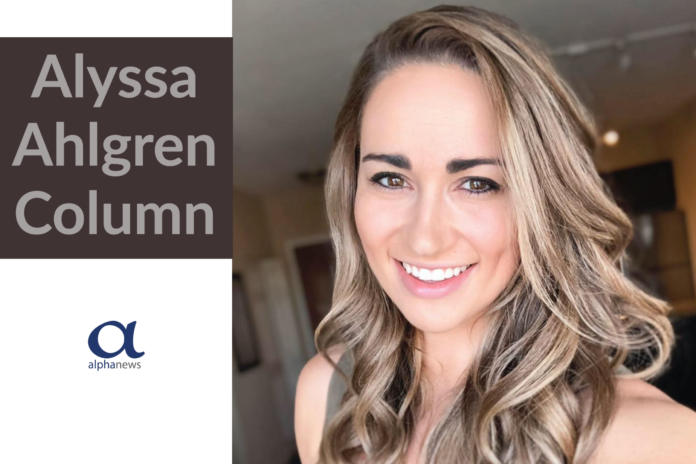I am increasingly confused by the notion that if you are worried about the state of the economy during this pandemic and want to reopen that you are somehow valuing money over human life. This is such a narrow-minded argument that it astounds me to see so-called reputable journalists, politicians, and public figures peddling such nonsense with a serious face. However, when we look at the common denominator of those making the accusation it makes sense as to why they feel smug and dignified in doing so–these people are still receiving a paycheck.
Prioritizing the economy is not a prioritization ahead of human life; it’s quite the opposite. Worrying about the economy is a direct concern for human life. Millions of Americans are losing their jobs, food banks are being overwhelmed, families are struggling to put food on the table and pay bills, drug and alcohol relapses are devastatingly more likely, suicide hotline calls are spiking, and every day we wait to reopen is another day lives are adversely affected long-term.
How long and to what lengths are we willing to go to delay infection at the expense of livelihoods? Because that’s what it is, a delay. The entire premise of the shutdown is to “flatten” the curve, not “shorten” it. Flattening the curve means the number of infections stays the same. The only thing that changes is timing. Thanks in part to dishonest politicians and the media, we have forgotten this fact. Whether we end the shelter-in-place orders now or in August, it makes no difference, we will see a rise in cases the moment we allow people to live openly. What then? Do we go back indoors and hide and do this all over again and just see the same outcome once we try to reopen once more?
There is no avoiding COVID. A majority of the population may get infected no matter what we do. Again, it’s a matter of whether we experience it now or later. Are we willing to go through a spike in the short-term in order to save livelihoods and our economy in the long run? Or are we going to delay, delay, delay until we have destroyed the working class, our economy, and have the populace solely depend on government handouts?
Yes, our baseline risk of doing daily life has heightened overall. However, the dangers do not outweigh the negative effects of keeping our economy shut down. We have come to the point where the “cure” is worse than the disease. Of course, like in all scenarios, we need to look at the nuance of the situation. This is not a one-size-fits all solution. The mortality of the virus varies greatly with age, health, and pre-existing conditions. For instance, studies have shown that obesity is one of the biggest risk factors for severe COVID-19 cases. Deaths are also almost exclusive to a subset of people. According to CDC data, out of the .00005% of people in the United States that have died from COVID-related causes, people over the age of 55 consisted of 91.6% of them. If we include people over the age of 45, that percentage is 97%. If we go even further and include those above 35, the percentage of the COVID deaths of that age range consists of is 99%. These figures include people with pre-existing conditions. In fact, if you are a healthy 30-year-old your chances of dying of COVID are the same as dying in a car accident on the way to work—a risk we’re willing to take almost daily. These statistics even negate antibody testing, which is required to estimate the true number of infected individuals and the death rate. New studies coming out of California are revealing that potentially 50-85% more people have or had COVID than estimated, making the death rate drastically lower than predicted. Yet, based on these statistics we’re telling everyone they can’t go to work.
Due to the nuances and complexity of the effects of the disease, it is ridiculous and irresponsible to treat it with a blanket solution. There is no reason, for example, for a healthy 40-year-old to not make the decision to go back to work if he or she so chooses to take on that risk. The American people are responsible and competent enough to engage in an open economy while social distancing and taking precautions. The population that is at-risk can stay at home. It makes no sense to treat the population as one uniform risk factor.
The Americans that are out there protesting the extensive and unnecessary measures taken to misguidedly “avoid” infection are not out there because they just want a haircut. They are out there exercising their right to protest the government because the overreach is viewed as more dangerous than the situation that sparked it. The odds of contracting COVID and experiencing symptoms are still extremely low. The odds of contracting it and dying are even lower and for some groups of people, dismal. When you tell a father of three that he can no longer go to work indefinitely, compensate him a mere $1,200, and expect him to sit there complacently as his fridge empties out and he can’t provide for his family, don’t be surprised when he has had enough.
When we talk about reopening the economy we aren’t talking in dollars and cents. We’re talking in terms of feeding families, addiction recovery, health, livelihoods, and the future of our country. Sure, we can delay the infection rate a couple of months, but we will need to emerge and when we do the outcome will be the same. Opening up the economy to those who are willing and able to handle some extra risk at the benefit of their lives and families is not a case against the health of your grandma with heart disease. It’s a case for that small-town store owner struggling to pay off her debt. It’s a case for the single mother who relies on her job at the restaurant. It’s a case for the hard-working father to make sure his kids don’t go hungry. It’s a case for the American people to take their dignity, liberties, and their lives back.
Alyssa Ahlgren
Alyssa has her Bachelor’s in Business Administration and currently works as an analyst in corporate finance. She grew up in northern Wisconsin and is a former collegiate hockey player. Alyssa is pursuing her passion for current events and politics through writing and being an advocate for the conservative movement.

















